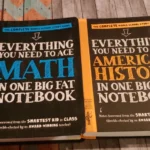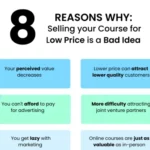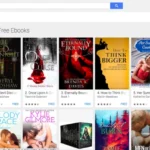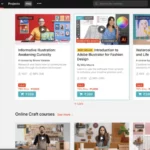Looking to save money on your university textbooks? Look no further! In this article, we will provide you with valuable tips and strategies for haggling when making bulk purchases of textbooks. We understand that textbooks can be a significant expense, so we’ve got you covered. From considering older editions to exploring free online textbooks, we’ll show you how to get the best deals and save some serious cash. So, buckle up and get ready to navigate the world of textbook shopping like a pro!
Contents
Tip 1: Consider Getting an Earlier Edition
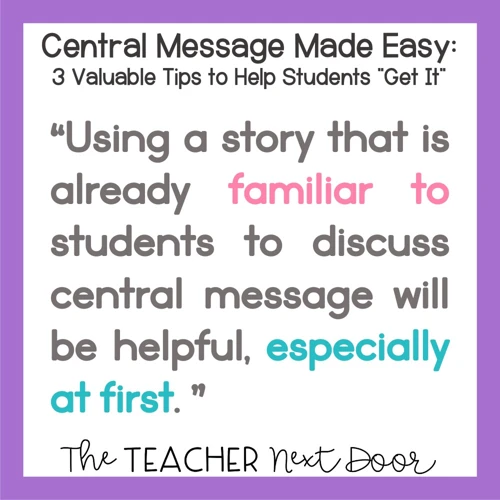
When it comes to buying textbooks, considering getting an earlier edition can be a smart move to save some money. However, before making a decision, it’s important to get approval from your lecturer to ensure that the content is still relevant and aligns with the current curriculum.
One of the main advantages of opting for an earlier edition is the potential cost savings. Older editions of textbooks are often available at a lower price compared to the latest editions. While there may be some differences in terms of formatting or supplementary materials, the core content usually remains similar. This means you can still gain the necessary knowledge and information from an earlier edition while maximizing your savings.
To get started, check with your campus bookstore or online marketplaces like Chegg or Amazon for used copies of earlier editions. You can also reach out to students who have already completed the course and see if they are willing to sell their old textbooks. Building connections with students who are a year ahead in their studies can be beneficial in finding affordable options.
It’s important to note that if your class requires the use of access codes that come with a new edition, you may need to purchase a new textbook. However, for courses where access codes are not mandatory, opting for an earlier edition can be a viable option.
Consider the benefits of buying earlier edition textbooks. Not only can you save money, but you can also contribute to reducing waste by reusing resources. So, before breaking the bank on the latest edition, explore the possibility of getting an earlier edition and maximize your savings as a college student.
**Link**: If you want to learn more about the benefits of buying earlier edition textbooks, you can check out this article on [maximizing savings with college student discounts on textbooks](/maximize-savings-college-student-discounts-textbooks/).
1.1 Ask Your Lecturer for Approval
Ask your lecturer for approval before making any textbook purchases. It’s important to get their input and ensure that the textbooks you choose align with the course material. By discussing your options with them, you can avoid buying unnecessary or outdated materials. Additionally, your lecturer may have recommendations for alternative resources that can save you money.
When asking for approval, be sure to provide them with the necessary details. This includes the title, author, and edition of the textbook you are considering. You should also mention any potential cost savings, such as purchasing an earlier edition or renting the textbook instead. By being transparent about your intentions and demonstrating your willingness to explore cost-saving options, you may be able to negotiate a better deal.
Remember, the goal is to find the most suitable and affordable textbooks for your course. Your lecturer is there to support you in this process, so don’t hesitate to reach out to them. Their expertise and guidance can help you make informed decisions and save money.
For more information on saving money on textbook rentals, you can check out our article on “Save Money on Textbook Rentals“.
1.2 The Content Similarity and Cost Savings
When it comes to purchasing university textbooks in bulk, considering the content similarity and potential cost savings can make a significant difference. It is essential to assess whether the content of earlier editions is similar enough to the current edition to meet your academic needs. This comparison can help you determine if opting for an earlier edition can provide the same learning experience while saving you money.
To evaluate the content similarity, you can consult with your lecturer or course instructor. They can guide you on whether using an earlier edition will align with the course requirements and provide the necessary knowledge. By seeking their approval, you can ensure that you are making a wise decision in terms of both cost savings and academic relevance.
Additionally, researching the market can give you an idea of the price range for similar textbooks. This knowledge will help you negotiate better deals and understand the fair market value of the textbooks you are interested in purchasing. You may find comparable items for sale elsewhere, which can give you leverage in haggling for a more affordable price.
It’s important to note that while considering earlier editions can bring cost savings, you should not mistake similarity for equivalence. Pay attention to differences between editions, such as model numbers, specifications, and any potential wear and tear that may affect the value of the textbook. Taking these factors into account will ensure that you are making an informed decision and not compromising the quality of your learning materials.
To further assist you in your search for cost-effective options, you can explore online platforms that offer textbook price comparison. These platforms can help you find the best deals, compare prices from different sellers, and potentially save you a significant amount of money. For example, you can check out the textbook price comparison options available at Barnes & Noble or Chegg.
Considering the content similarity and potential cost savings when purchasing university textbooks in bulk is crucial. By evaluating the similarity between editions, seeking approval from your lecturer, and conducting thorough market research, you can make informed decisions that balance affordability and academic requirements. Remember to always prioritize the quality of your learning materials while aiming to save money.
Tip 2: Haggling for Bulk Discounts
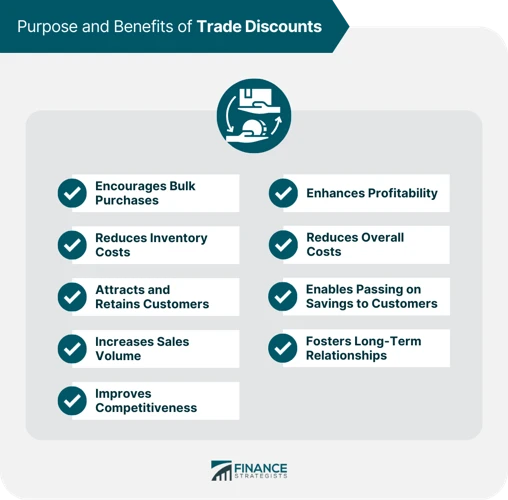
When it comes to purchasing textbooks in bulk, haggling can be a powerful tool to help you save even more money. Here are some strategies you can use to negotiate for bulk discounts:
2.1 Buying from the Same Person
One approach to consider is buying all your textbooks from the same person. This can give you an advantage when it comes to negotiating a good deal. By purchasing multiple books from one seller, you can demonstrate that you are a serious buyer and may be able to leverage this to secure a discounted price. Additionally, buying from the same person can save you time and effort, as you won’t have to deal with multiple sellers.
2.2 Negotiating for a Good Deal
When haggling for bulk discounts, it’s important to approach the negotiation with confidence and a friendly demeanor. Build rapport with the seller, emphasizing that you are a loyal customer and that their willingness to give you a discount will benefit them in the long run. Remember to ask for more of a discount than you actually expect to receive, as this allows room for compromise. For example, if you hope for a 10% discount, ask for 15%.
Don’t limit your negotiation to just lowering prices. Consider asking for additional perks or freebies to enhance your overall value. For instance, you could request free shipping or extra study materials to sweeten the deal.
It’s also helpful to do some research beforehand to ensure you are getting a fair price. Look for competing offers and compare prices online. However, keep in mind that the lowest price may not always be the best deal when hidden costs like delivery charges are factored in.
Remember, the key to successful haggling is maintaining a respectful and positive attitude. By following these tips and being a savvy negotiator, you can maximize your savings when buying textbooks in bulk.
If you’re interested in comparing textbook prices, you can check out the textbook price comparison to find the best deals available.
Now that you’ve learned about haggling for bulk discounts, let’s move on to our next tip: exploring free online textbooks.
2.1 Buying from the Same Person
When it comes to haggling for bulk discounts on university textbooks, one effective strategy is to buy from the same person. This can be especially advantageous when purchasing textbooks from individual sellers online or through platforms like VarageSale, OfferUp, or Facebook Marketplace.
By purchasing multiple textbooks from the same seller, you can leverage your buying power and negotiate a better deal. Sellers may be more willing to offer discounts or additional incentives when they see the potential for a larger sale.
Buying from the same person also allows you to build a relationship with the seller. By becoming a regular customer, you can establish trust and rapport, which can lead to more favorable pricing in the long run. Additionally, if you encounter any issues with your textbooks, having a relationship with the seller may make it easier to address and resolve any concerns.
When approaching a seller to negotiate a bulk purchase, remember to be friendly but firm. Use your knowledge of the market value of the textbooks to make a reasonable offer. Highlight the benefits of buying multiple textbooks from them, such as the convenience of a single transaction and potential savings on shipping costs.
To further enhance your negotiation position, emphasize the advantages of buying from the same person in terms of reliability, consistency, and potential future discounts. You can mention that you appreciate their expertise and trustworthiness, and express your interest in continuing to do business with them.
By utilizing this strategy of buying from the same person, you can increase your chances of securing a great deal on your university textbooks. Remember to negotiate respectfully and be open to compromise, as building a mutually beneficial relationship with the seller can lead to long-term savings.
2.2 Negotiating for a Good Deal
When it comes to negotiating for a good deal on your university textbooks, there are a few strategies you can employ. One effective tactic is to bundle several items together in your purchase. By asking the seller, “What about if I buy two of them?” you can demonstrate your bargaining power. However, keep in mind that the seller may try to recoup their profit by adjusting the pricing of the other items.
Before you start bargaining, it’s important to do your research. Take the time to explore the market and see what competitors are offering. This will give you a clear sense of what a reasonable price would be and provide you with leverage when negotiating. However, be cautious of hidden costs such as delivery or additional surcharges that may make a supposedly cheaper price not so cheap after all.
During the bargaining process, it’s essential to maintain a polite and positive approach. Initiate the negotiation by asking the seller, “Is that your best price?” This question demonstrates your interest in reaching a mutually beneficial agreement. Additionally, consider offering a sound rationale for the seller to meet you at a happy medium.
Body language and facial expressions also play a significant role in negotiation. Show enough interest to make the seller hopeful of making a sale, but avoid appearing overly eager. A friendly smile can go a long way, but be prepared to walk away if necessary.
The online world has given consumers a powerful platform to share their experiences, including poor customer service. Retailers are now more inclined to accommodate reasonable requests for negotiation to avoid negative reviews and social media comments. However, the flip side of this connectivity is that if word gets out that one person received a good deal, every customer may expect the same.
When it comes to haggling, bigger ticket items like white goods and cars offer the best opportunity for negotiation. Additionally, second-hand goods where the value is up for debate can also be negotiated.
Remember, skillful negotiation involves knowing when to walk away and having a clear sense of the other party’s position. Analyze the situation to determine if the other party needs the deal as much or more than you do. It’s important to assess whether it’s more beneficial to focus on dividing the pie or growing it. Sometimes, getting a larger percentage of a smaller pie may be more advantageous than settling for a smaller percentage of a slightly larger one.
Negotiating for a good deal on university textbooks requires research, a polite and positive approach, and careful consideration of the market and the other party’s position. By employing these strategies, you can increase your chances of securing a favorable deal and saving money on your textbooks.
Tip 3: Exploring Free Online Textbooks
When it comes to saving money on university textbooks, one of the best options is to explore free online textbooks. This method can be especially beneficial for disciplined students who are proactive in their studying and don’t rely on last-minute cramming.
First, try doing a quick Google search to look for PDF versions of your required textbooks. You might be surprised to find that many textbooks, especially older literature works, are available online for free. Nonprofit sites like Project Gutenberg offer a wide range of classic novels and other works in PDF format at no cost.
Another option is to check out what your college or university’s library has to offer. They may have digital copies of textbooks that you can access for free. Additionally, some universities provide free access to massive online libraries of academic journals, which can be a valuable resource for research purposes.
If you prefer digital textbooks, consider using CourseSmart. This platform offers thousands of textbooks from major publishers in an affordable e-book format. The catalog is constantly expanding, so you’re likely to find the majority of the core textbooks used in North American higher education.
For even more free reading options, websites like Open Library, Project Gutenberg, and Google Books offer a vast selection of books that can be read on tablets or laptops. Amazon Prime also offers unlimited access to Prime Reading, which includes thousands of books to choose from, and as a student, you can get six months of Prime for free.
If you’re looking for a physical copy of a textbook, consider forming a book-sharing group with other students in your major. This way, you can buy, sell, and share textbooks at fair prices within your circle.
Lastly, textbook swap sites such as BookMooch and BookCrossing can help you find academic books for free or at a discounted price. These sites have libraries with hundreds of thousands of books, and their collections are constantly changing.
Remember, exploring free online textbooks can be a great way to save money, but it’s crucial to be proactive and plan ahead. Make sure you have access to the required materials when you need them, especially if you’re sharing resources with others or relying on digital copies.
Conclusion
In conclusion, when it comes to purchasing university textbooks in bulk, there are several strategies that can help you save money and get the best deals. By considering getting an earlier edition of the textbook, you can potentially save a significant amount of money without compromising on the content. It is important to ask your lecturer for approval before opting for an earlier edition, as they can provide guidance on whether the content is similar enough for your needs.
Haggling for bulk discounts is another effective strategy. If you are buying multiple books from the same person, it is worth negotiating for a good deal. Independent bookstores and smaller sellers are often more open to haggling, so don’t be afraid to try your negotiation skills.
Additionally, exploring free online textbooks can be a great way to access required reading materials without spending any money. Websites such as Bartleby.com, Open Library, Project Gutenberg, and Google Books offer a wide range of books that can be read online for free.
By implementing these tips and strategies, you can significantly reduce the cost of your university textbooks. Remember to be proactive and start your search early, as free textbooks from your university library or online platforms may be limited in availability. Don’t forget to check out our guide to haggling like a pro for more tips on perfecting your bartering technique.
Save money, get the textbooks you need, and excel in your studies without breaking the bank. Happy textbook shopping!
For more information on the benefits of buying earlier edition textbooks, you can visit our article on the benefits of buying earlier edition textbooks.
Frequently Asked Questions
FAQs
1. Can I save money by getting an earlier edition of my textbook?
2. How can I determine if the content in an earlier edition is similar enough to the latest edition?
3. Is it necessary to ask my lecturer for approval before purchasing an earlier edition?
4. Are there any disadvantages to opting for an earlier edition of a textbook?
5. How can I haggle for a bulk discount when buying from the same person?
6. What are some negotiation strategies I can use to get a good deal on bulk purchases?
7. Are there any risks or drawbacks to buying second-hand textbooks?
8. How can I access free online textbooks for my university studies?
9. Are there any limitations or restrictions when using free online textbooks?
10. What other resources can I explore to find affordable textbooks for my courses?


